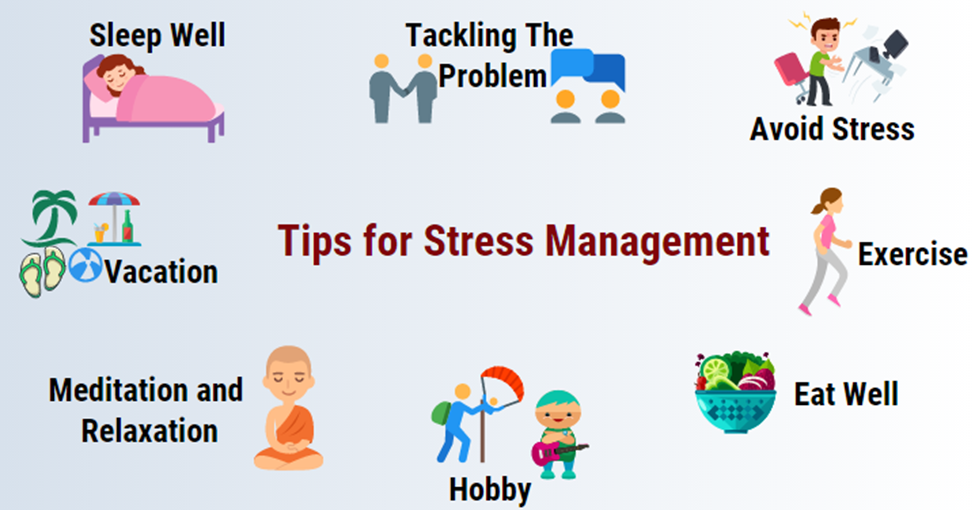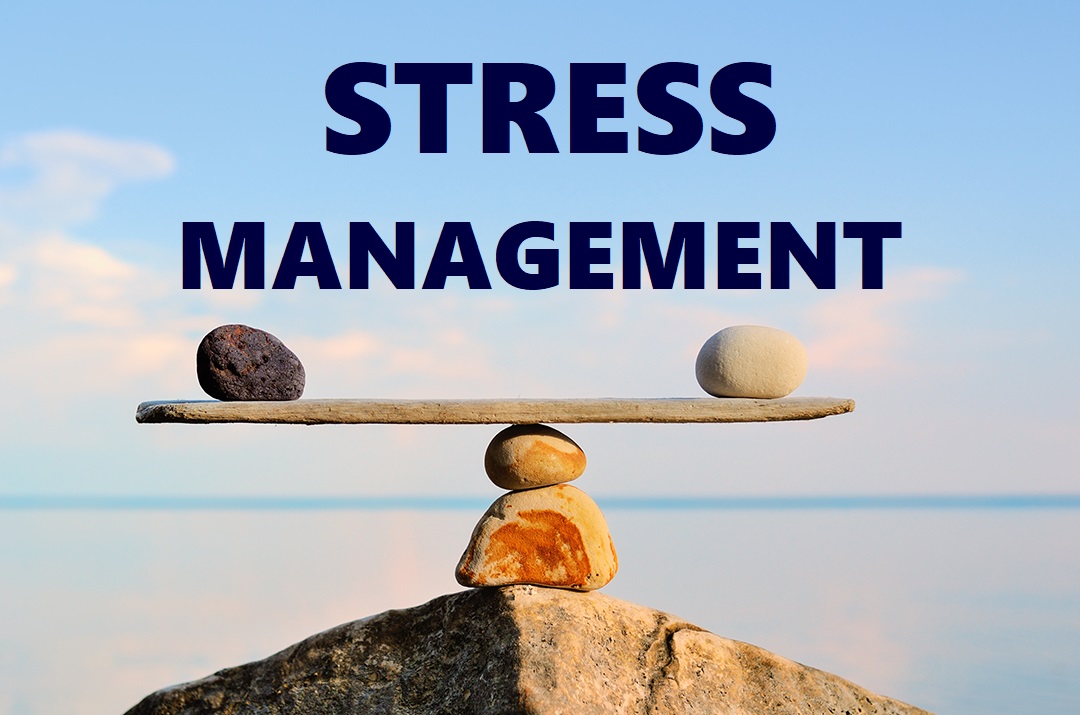Managing stress during your weight loss journey is key to staying on track and keeping your mind and body healthy. Whether you’re adjusting to new routines, struggling with setbacks, or just feeling overwhelmed, stress can make it harder to stick to your plan. Here’s how you can manage stress effectively and keep your weight loss journey positive and sustainable. Let’s get started! 🌟

1. Set Realistic Goals 🎯
One major cause of stress is setting goals that are too ambitious. When you push yourself too hard, it can feel discouraging if you don’t hit your target right away.
📸 [Insert a photo of a fitness planner or a goal-setting notebook]
- Start Small: Aim for small, manageable goals, like losing 1-2 pounds per week or increasing your step count by 500 steps daily.
- Celebrate Progress: When you reach a milestone, reward yourself with something non-food related, like new workout gear or a spa day. Little victories keep you motivated!
2. Build a Strong Support System 🤝
Having a supportive network of people can make a big difference in your stress levels. Surround yourself with people who understand your goals and encourage you.
📸 [Insert a photo of friends or family cheering each other on during a workout]
- Find a Community: Join online groups or local fitness classes to connect with others on the same path. Sharing struggles and successes can help ease the pressure.
- Talk to a Professional: Consider working with a personal trainer, therapist, or nutritionist to guide you and keep your stress in check.
3. Practice Mindfulness 🧘♀️
Mindfulness is all about staying present and focused. It’s a great tool to help you manage stress, especially when it comes to emotional eating and keeping a positive mindset.
📸 [Insert a photo of someone meditating outdoors or a peaceful scene]
- Mindful Eating: Focus on eating slowly and appreciating every bite. This helps you avoid stress-eating and makes you more in tune with your body’s hunger signals.
- Try Meditation: Even a 5-minute meditation can reduce stress and anxiety. Apps like Calm or Headspace offer guided sessions specifically for stress relief.
4. Exercise for Fun, Not Just Results 🏃♂️
Exercise is a great way to relieve stress, but it shouldn’t feel like a chore. Instead of thinking about how many calories you’re burning, focus on activities that make you feel good.
📸 [Insert a photo of someone dancing, hiking, or doing a yoga pose]
- Find Your Joy: Whether it’s dancing, swimming, or yoga, find something you enjoy. This way, exercise becomes a stress reliever, not a source of stress.
- Mix It Up: Change your routine to keep things fun. Try a new workout class or take your usual routine outdoors for a fresh environment.
5. Get Enough Sleep 😴
Sleep and stress are closely linked. Lack of sleep makes it harder to manage stress and can affect your weight loss by increasing cravings for unhealthy foods.
📸 [Insert a cozy bedroom scene or someone peacefully sleeping]
- Create a Bedtime Routine: Set a consistent sleep schedule and create a calming pre-bedtime routine. Avoid screens and caffeine before bed to improve sleep quality.
- Aim for 7-9 Hours: Getting enough rest will not only reduce stress but also give you more energy for your workouts and meal planning.
6. Practice Self-Compassion 💖
Weight loss journeys are rarely perfect, and that’s okay. Don’t beat yourself up over a missed workout or an indulgent meal. Self-compassion helps reduce stress and keeps you on track in the long run.
📸 [Insert a motivational image or someone giving themselves a hug]
- Be Kind to Yourself: When you face setbacks, remind yourself that it’s part of the process. Focus on how far you’ve come, not how far you have to go.
- Positive Affirmations: Start your day with a positive affirmation like, “I am doing my best,” or “I am making progress.” These small reminders can help shift your mindset.
7. Avoid Emotional Eating 🍕→❌
Stress often leads to emotional eating, which can derail your weight loss efforts. Understanding your triggers can help you develop better coping mechanisms.
📸 [Insert a photo of healthy snack options or someone choosing fruit over sweets]
- Identify Your Triggers: Keep a journal of when you feel the urge to eat out of stress. Understanding what causes these moments (boredom, anxiety, etc.) will help you avoid them.
- Find Alternatives: Instead of reaching for food when stressed, take a walk, listen to music, or call a friend. Distraction is a powerful tool to manage emotional eating.
8. Stay Flexible with Your Plan 📝
Having a rigid plan can cause more stress, especially when life throws you curveballs. Flexibility is key to long-term success.
📸 [Insert a photo of someone adjusting their workout plan or meal schedule]
- Adjust as Needed: If you miss a workout or can’t stick to your meal plan, don’t stress. Simply adjust and move forward. Weight loss is a journey, not a sprint.
- Allow Treats: Deprivation leads to stress. Incorporate your favorite treats in moderation so you don’t feel like you’re missing out.
Conclusion: Focus on the Big Picture 🌟
Your weight loss journey is about more than just numbers on a scale. It’s about improving your overall health, both physically and mentally. By managing stress and staying positive, you’ll create sustainable habits that last a lifetime.








Leave a Reply